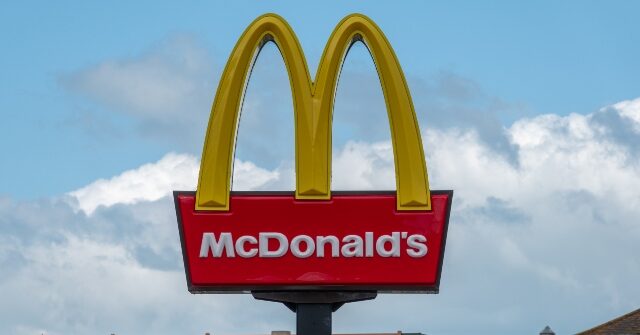A recent incident at a McDonald’s in Altoona, Pennsylvania, has sparked significant backlash following the arrest of 26-year-old Luigi Mangione, a prime suspect in the shocking murder of UnitedHealthcare CEO Brian Thompson in Manhattan. The drama unfolded when a vigilant McDonald’s employee tipped off local authorities about a potentially dangerous customer found with a weapon and writings linked to the homicide. This decision has drawn ire from some who defend Mangione, resulting in an influx of negative online reviews targeting local McDonald’s locations. As the online backlash escalated, Google intervened, purging inappropriate reviews that violated their content policies.
The reviews flooded in, often containing politically charged remarks and bizarre anecdotes related to the murder. Users voiced their frustrations and took aim at the restaurant’s staff, branding them as traitors for cooperating with authorities. One review went as far as to accuse the restaurant of housing a “traitor” among its employees, while others mocked the food and suggested health insurance issues for staff due to the quality of the offerings. The uproar has gone beyond mere complaint, reflecting broader societal concerns about trust in health insurance companies and their treatment of clients, drawing a connection to Mangione’s alleged motives—though these remain murky at best.
The arrest of Mangione has sparked a national conversation about the perceived failures of health insurance companies, particularly regarding their focus on profit rather than patient care. While online haters have emerged to support Mangione, viewing him as a folk hero for subverting corporate greed, many have condemned this perspective as utterly disgraceful, especially regarding the pain inflicted upon Thompson’s family. The emotional toll of these narratives continues to escalate, underscoring the complex relationships between consumers, corporate entities, and societal values surrounding justice and morality.
Mangione, a graduate of the prestigious University of Pennsylvania, is facing charges linked to a ghost gun found at the time of his arrest. In a potential silver lining for the McDonald’s employee who reported him, they might qualify for a $50,000 reward from the FBI for providing critical information. This case not only shines a light on the role of citizen vigilance in crime prevention but also poses questions about the implications of social media justice, especially destruction faced by innocent businesses dragged into the fray of a high-profile criminal case.
The backlash experienced by the Altoona McDonald’s mirrors the backlash against a hostel in New York City where Mangione supposedly stayed. Workers there were similarly branded as “narcs” for helping law enforcement. This pattern reveals a troubling trend where individuals or businesses cooperating with the police face immediate retribution and public vilification from those who sympathize with suspected criminals. It raises discussions about society’s tendency to vilify those who do the right thing, highlighting a growing divide in public sentiment towards justice and accountability.
In summary, the arrest of Luigi Mangione in connection with the murder of Brian Thompson has ignited a multifaceted discussion, touching upon corporate ethics, public health frustrations, and the implications of citizen involvement in law enforcement. The backlash faced by Altoona’s McDonald’s serves as a stark reminder of the unintended consequences businesses may face when caught in the crossfire of criminal activity. As the story develops, it may continue to blur the lines between justice, public opinion, and the role of social media in shaping community responses to complex legal issues.

